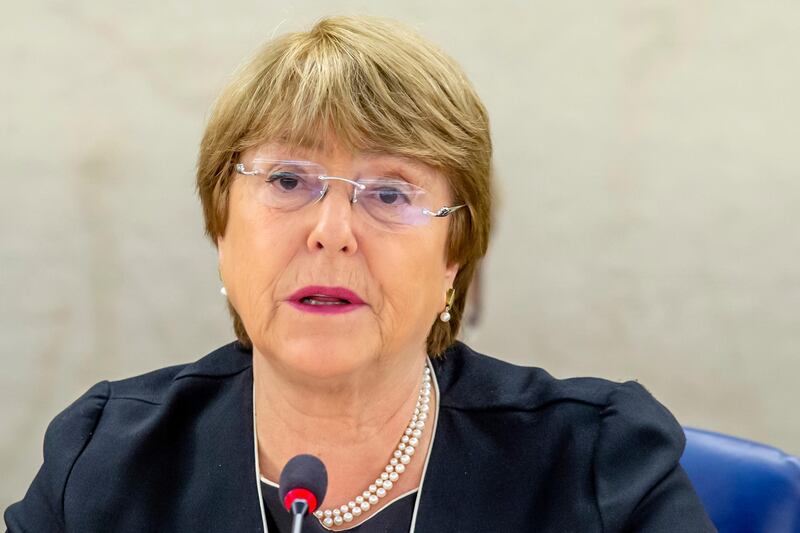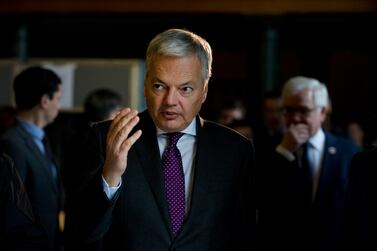The UN rights chief called Monday for countries to repatriate family members of suspected foreign fighters in Syria, including some 29,000 foreign children of ISIS militants.
The situation of foreign fighters and their families topped a long line of concerns listed by Michelle Bachelet in her opening address to the UN Human Rights Council in Geneva, which also included the tensions wracking Sudan.
She insisted that countries must take responsibility for their nationals caught up in Syria's drawn-out war.
Following the collapse of ISIS's self-proclaimed caliphate, foreigners from nearly 50 countries have been detained in Syria and Iraq, and more than 11,000 of their family members are being held in Syria's al-Hol camp "in deeply sub-standard conditions", Ms Bachelet said.
Several governments are grappling with the problem of what to do with captured militant fighters from their country, the women who married them and their children.
The UN High Commissioner for Human Rights said there should be no doubt.
"Foreign family members should be repatriated, unless they are to be prosecuted for crimes in accordance with international standards," she said.
"Children, in particular, have suffered grievous violations of their rights, including those who may have been indoctrinated or recruited by Isil to perpetrate violent acts," she said, using another acronym for ISIS.
"The primary consideration must be their rehabilitation, protection and best interests."
The UN rights chief pointed to Unicef estimates that there are some 29,000 children of foreign fighters in Syria – 20,000 of them from Iraq – and most of them under 12.
Many of the children were born in Syria, and some governments have refused to grant them their parent's nationality.
"Despite the complexity of these challenges, rendering people stateless is never an acceptable option," Ms Bachelet said.
"Thousands of young children have been born to foreign families during the years of conflict, and states should provide the same access to nationality for children born to their nationals in conflict zones as is otherwise applicable," she said.
"To inflict statelessness on children who have already suffered so much is an act of irresponsible cruelty," she insisted.
Ms Bachelet also stressed that countries were responsible for their citizens facing prosecution for being foreign fighters in Syria, as well as in Iraq, where more than 150 have been sentenced to death under anti-terrorism laws.
"States have important responsibilities for their own nationals," she said.
"If citizens are suspected of committing serious crimes in another country, or detained on any grounds, the state of origin should make all efforts to ensure that they will be treated in accordance with international law."
Ms Bachelet also voiced deep concern over Sudan, which has been wracked by tensions between protest leaders and the generals who seized power after the army ousted long-time president Omar Al Bashir in April.
Ms Bachelet cited reports that more than 100 people were killed and many more injured in a bloody breakup of a peaceful rally on June 3.
"We have received allegations of rape and sexual abuse of both women and men during the crackdown, as well as information alleging that hundreds of protesters may be missing," she said.
"I regret that the government has not responded to our request for access to investigate allegations of serious human rights violations by the joint security forces during the crackdown," she added.
Ms Bachelet also called for Sudan to end a nationwide internet blockade.






